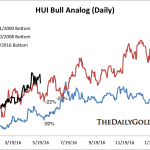
Jacobello Alberegno, The Beast of the Apocalypse 1360-90
The Guardian ran an article yesterday by one of its editors, David Shariatmadari, that both proves and disproves its own theme at the same time: “An Information Apocalypse Is Coming”. Now, I don’t fancy the term apocalypse in a setting like this, it feels too much like going for a cheap thrill, but since he used it, why not.
My first reaction to the headline, and the article, is: what do you mean it’s ‘coming’? Don’t you think we have such an apocalypse already, that we’re living it, we’re smack in the middle of such a thing? If you don’t think so, would that have anything to do with you working at a major newspaper? Or with your views of the world, political and other, that shape how you experience ‘information’?
Shariatmadari starts out convincingly and honestly enough with a description of a speech that JFK was supposed to give in Dallas right after he was murdered, a speech that has been ‘resurrected’ using technology that enables one to make it seem like he did deliver it.
An Information Apocalypse Is Coming. How Can We Protect Ourselves?
“In a world of complex and continuing problems, in a world full of frustrations and irritations, America’s leadership must be guided by the lights of learning and reason, or else those who confuse rhetoric with reality, and the plausible with the possible will gain the popular ascendancy with their seemingly swift and simple solutions to every world problem.”
John F Kennedy’s last speech reads like a warning from history, as relevant today as it was when it was delivered in 1963 at the Dallas Trade Mart. His rich, Boston Brahmin accent reassures us even as he delivers the uncomfortable message. The contrast between his eloquence and the swagger of Donald Trump is almost painful to hear.
Yes, Kennedy’s words are lofty ones, and they do possess at least some predictive qualities. But history does play a part too. Would we have read the same in them that we do now, had Kennedy not been shot right before he could deliver them? Hard to tell.
What’s more, not long before JFK was elected president America had been in the tight and severe grip of J. Edgar Hoover and Joseph McCarthy’s anti-communist campaign, in which lots of reality was replaced with rhetoric, something Kennedy undoubtedly had in mind while writing the speech. JFK was not just addressing future threats, he was talking about the past as well.
But the writer slips into a much bigger faux pas right after: injecting Trump into the picture. It’s fine if someone doesn’t like Trump, but naming him there and then, in an article about ‘information apocalypse’, also means confusing objectivity with regards to your topic with subjectivity concerning your political ideas. While the Kennedy speech item relates to -advancing(?)- technology, a valid part of the apocalypse, mentioning Trump has nothing to do with that apocalypse, at least not objectively. Back to David Shariatmadari:














Leave A Comment